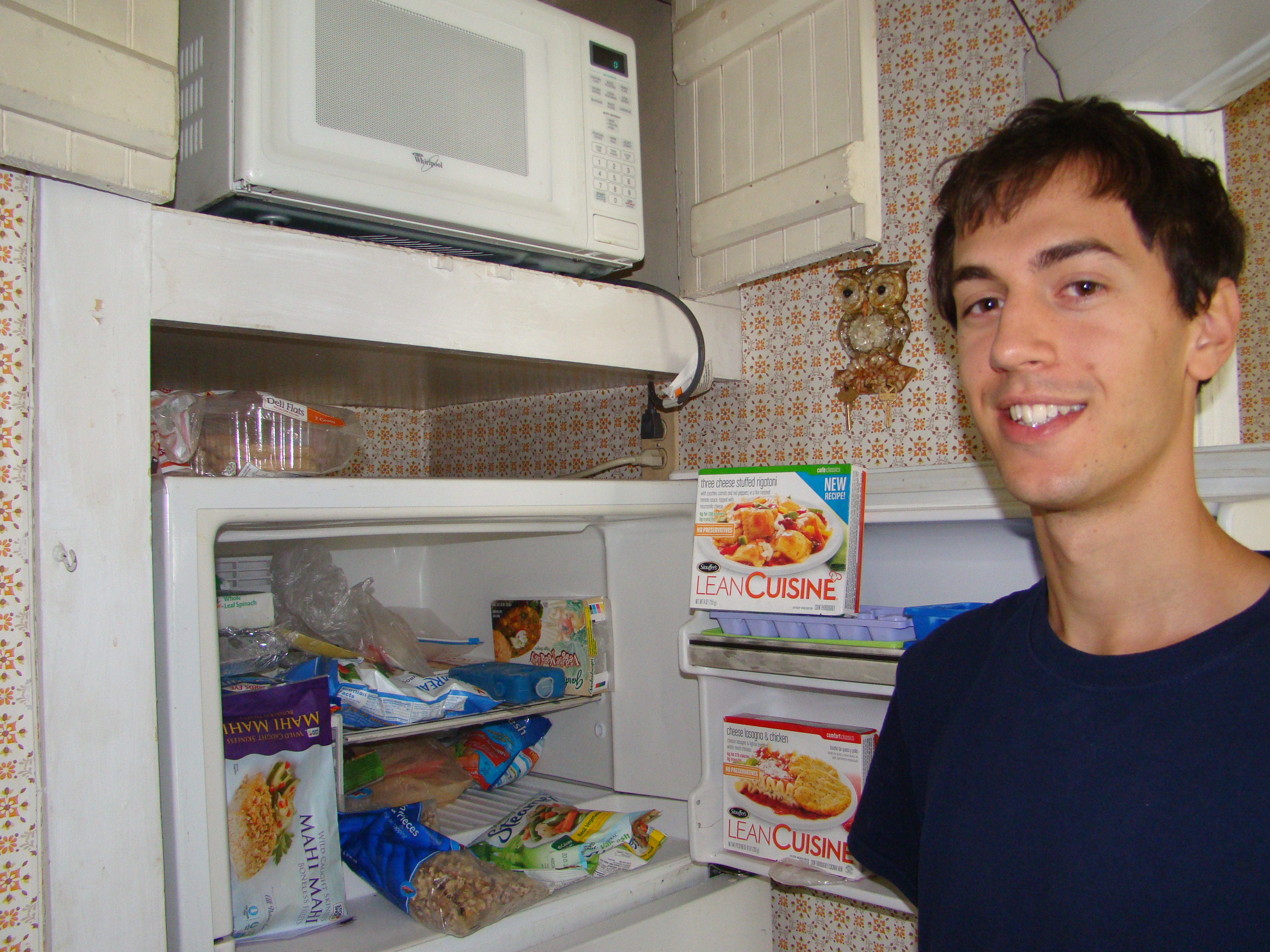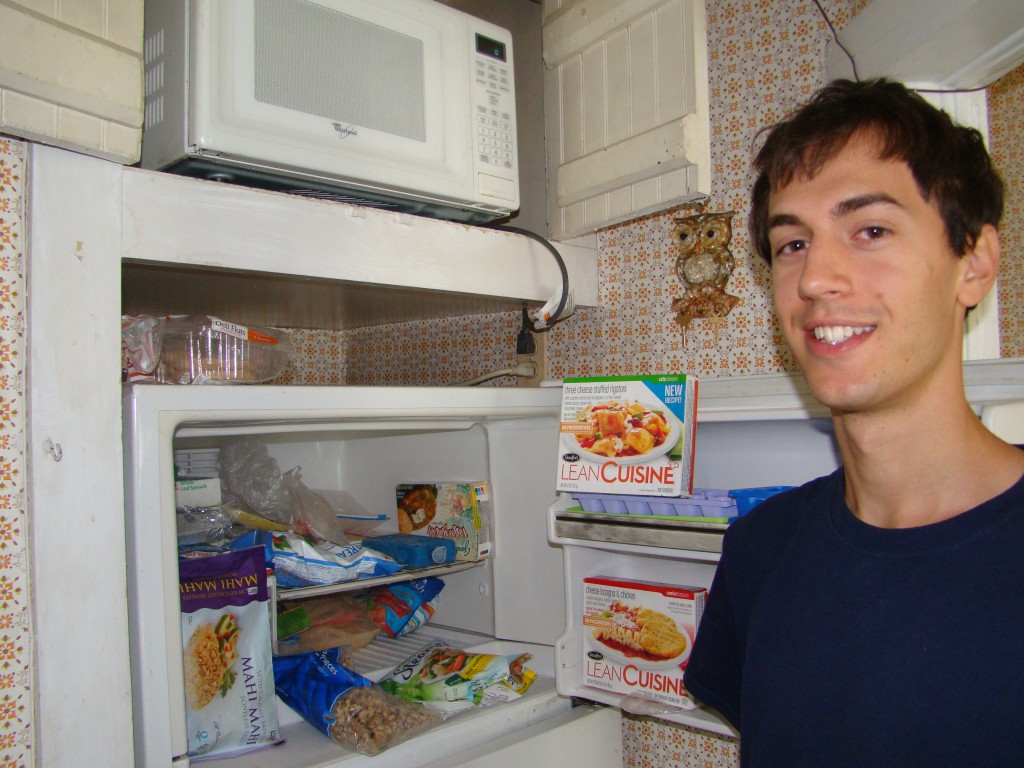

For many college students, eating on-campus makes everything simpler. One swipe of your card and voila, food sits before you already prepared and ready to be devoured. But for students living off-campus, meals don’t typically appear out of thin air. They require time, money and most importantly, a little creativity.
Students who live off-campus are discovering quick, easy and unexpectedly healthy ways to eat, especially on a low budget.
Joe Krug, a second-year business major living off-campus, experienced dining on-campus during his first year. Now a second-year student with no meal plan other than the one he provides for himself, Krug said he’ll never go back.
“I feel more grown up now,” Krug said. “You have to budget yourself and cook for yourself. You just start learning.”
For Krug and his two roommates, budgeting themselves on groceries each week has inspired them to discover a few quick and tasty recipes.
One of their favorites; a pasta dish with fresh vegetables and spices, was a surprise success.They discovered that they could feed eight to 10 people with this one meal for a total of $9.
But pasta isn’t the only low budget meal they’ve discovered. A more intricate meal that Krug invented consists of lightly toasted panini bread, fresh onions and peppers sauteed over the stove, with the addition of cheese, hummus, cilantro and turkey breast. This one meal proportioned for Krug and his two roommates, costs a mere $5 to produce.
“It’s cheaper to not throw things in the microwave,” Krug said. “You can buy bread, sauce, oils, all for healthier and cheaper.”
Hayley Green, a fourth-year sociology major living off campus is a three-year veteran when it comes to cooking healthy for herself and her three roommates.
“You begin to find certain dishes that you can depend on,” she said. “My backup meal usually consists of wild grain rice, mushrooms, peppers, onions and salsa.”
Nevertheless, taking on the task of cooking for one’s self or roommates isn’t always an easy transition.
“I never had to cook for myself before moving,” Green said. “It caused a lot of experiments. But I don’t think any part of me wanted to go back to eating on campus.”
Even the General Manager of Dining Services, Ralph Perez-Rogers, admits there are some advantages to eating off campus.
“If you go to Stop ‘n Shop and pick up chicken breasts, and you sauté and cook them, it’s going to be fresher and healthier to produce,” he said.
But for the 2,950 students who are currently participating in a meal plan on-campus, most resident halls come equipped with at least one kitchen where students can temporarily liberate themselves from dining on-campus.
